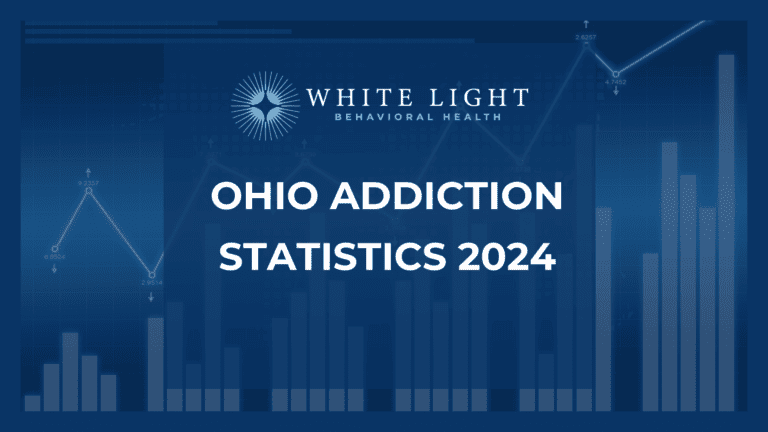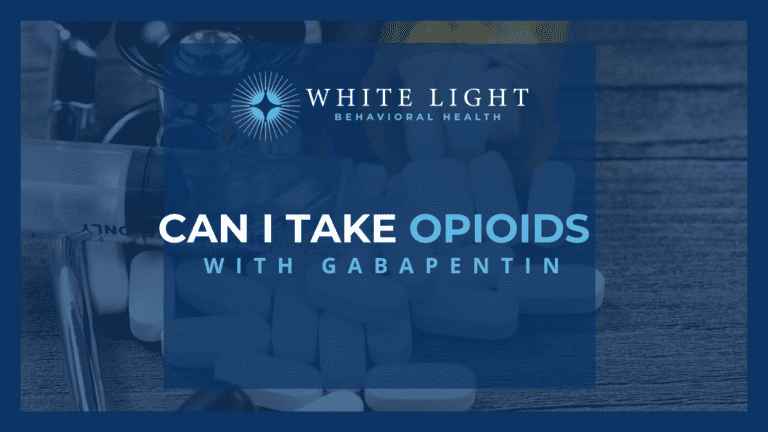The opioid crisis has left a deep scar across Ohio, with fentanyl, a potent synthetic opioid, at the forefront of this epidemic. Its highly addictive nature has led to a dramatic increase in overdoses and fatalities, underscoring the urgent need for effective treatment solutions. White Light Behavioral Health steps up to this challenge, offering a premier fentanyl withdrawal and detox center in Ohio. Specializing in comprehensive care, White Light is dedicated to guiding individuals through the complexities of fentanyl detox with empathy, expertise, and a focus on long-term recovery.

What Is Fentanyl?

Who Needs Fentanyl Detox And Rehab?
Recognizing the need for fentanyl detox and rehab is a crucial step towards recovery for individuals grappling with fentanyl addiction or experiencing overdose symptoms. This includes those who have used fentanyl without a prescription or are finding it challenging to cease usage of medically prescribed fentanyl safely.
The path to overcoming addiction may be necessary for various reasons, including but not limited to:
- Repeated unsuccessful efforts to quit fentanyl on your own.
- Experiencing withdrawal symptoms when attempting to stop.
- Prioritizing fentanyl use over previously enjoyed activities.
- Inability to function normally without the drug.
- Misleading healthcare providers to obtain fentanyl.
- Constant preoccupation with acquiring and consuming fentanyl.
- Using fentanyl in amounts or more frequently than prescribed.
- Strong, uncontrollable cravings for fentanyl.
- Medical Detoxification: Our medical team employs evidence-based protocols to manage withdrawal symptoms safely, offering 24/7 medical supervision to ensure a comfortable detox process.
- Residential Rehab: Clients can immerse themselves in a structured, therapeutic environment that provides both medical and emotional support, serving as an essential foundation for the recovery journey.
- Partial Hospitalization Program (PHP): PHP serves as a critical transitional phase, offering intensive daytime care while allowing clients the comfort and familiarity of their own homes during the evening.
- Intensive Outpatient Program (IOP): For clients ready to integrate back into their daily routines, IOP provides a flexible schedule that supports continued recovery while accommodating work or school commitments.
Fentanyl Detox and Rehab Services at White Light Behavioral Health in Columbus, Ohio
White Light Behavioral Health in Ohio specializes in a comprehensive and individualized approach to fentanyl detox and recovery. Understanding the unique challenges of each person’s battle with addiction, our facility offers a suite of services tailored to support clients from the initial detoxification through to long-term sobriety. Our programs include:
Why Choose Medically Assisted Fentanyl Treatment At White Light In Columbus, Ohio?

Medically assisted fentanyl treatment is good to help stabilize your body so your withdrawal symptoms do not become severe.
The other benefits of medically assisted fentanyl detox and treatment include:
- Using medicines will lessen the intensity of your withdrawal symptoms.
- You will enjoy aftercare support and planning.
- You will have access to counseling and therapy services.
- You will enjoy addiction and peer support education.
- A supervised environment ensures you receive 24-hour support and care from medical experts.
- Ensures you have the most comfortable and safest fentanyl detox experience.

Understanding the Difference Between Fentanyl Detox and Opioid Detox
The journey to recovery for individuals struggling with opioid addiction can vary significantly depending on the specific substance involved. While Fentanyl Detox and Opioid Detox share the common goal of guiding individuals through the withdrawal process to achieve sobriety, there are critical differences between them due to the unique properties and challenges of fentanyl compared to other opioids.
Fentanyl Detox is tailored to address the withdrawal from fentanyl, an opioid known for its extreme potency and high risk of overdose. The detox process for fentanyl is carefully managed due to the severe withdrawal symptoms and the high potential for relapse. Medical supervision and potentially the use of medication-assisted treatment (MAT) are crucial components of a fentanyl detox program to ensure safety and mitigate discomfort.
Opioid Detox, on the other hand, encompasses a broader range of opioid substances, including prescription painkillers, heroin, and synthetic opioids other than fentanyl. This detox process is designed to address the physical and psychological dependence on opioids in general. While the principles of medical supervision and support apply, the strategies and treatments may vary based on the specific opioid(s) used and the individual’s health, history of use, and co-occurring disorders.
The primary difference lies in the approach and intensity of care required for fentanyl detox due to its potency and the associated risks. Both detox programs, however, are essential components of a comprehensive treatment plan aimed at addressing opioid addiction, offering tailored support to meet the needs of individuals at different stages of their recovery journey.
Locating White Light Behavioral Health
White Light Behavioral Health is conveniently located in Ohio, making it accessible for individuals across the state seeking help with fentanyl addiction. Our facility is designed to offer a peaceful, supportive environment conducive to recovery.
Get Help With Fentanyl Addiction In Columbus, Ohio
Frequently Asked Questions About Fentanyl Detox
How long does fentanyl detox take?
The duration of fentanyl detox can vary depending on the level of dependence and individual health factors. Generally, the acute withdrawal phase may last from a few days to over a week. Our medical team provides a personalized assessment to offer a clearer timeline for each client.
What happens after detox?
Detox is an essential first step, but true recovery involves comprehensive treatment. Following detox, White Light offers therapy, counseling, and support programs designed to address the root causes of addiction, build resilience, and support long-term sobriety.
Does White Light accept insurance for detox services?
Yes, White Light works with a variety of insurance providers to cover the cost of detox and treatment. Our admissions team can assist with insurance verification and exploring your coverage options.
Can family members be involved in the treatment process?
Family involvement can be a key component of successful recovery. White Light encourages family participation through therapy sessions and educational programs, aiming to strengthen support networks and facilitate healing.



